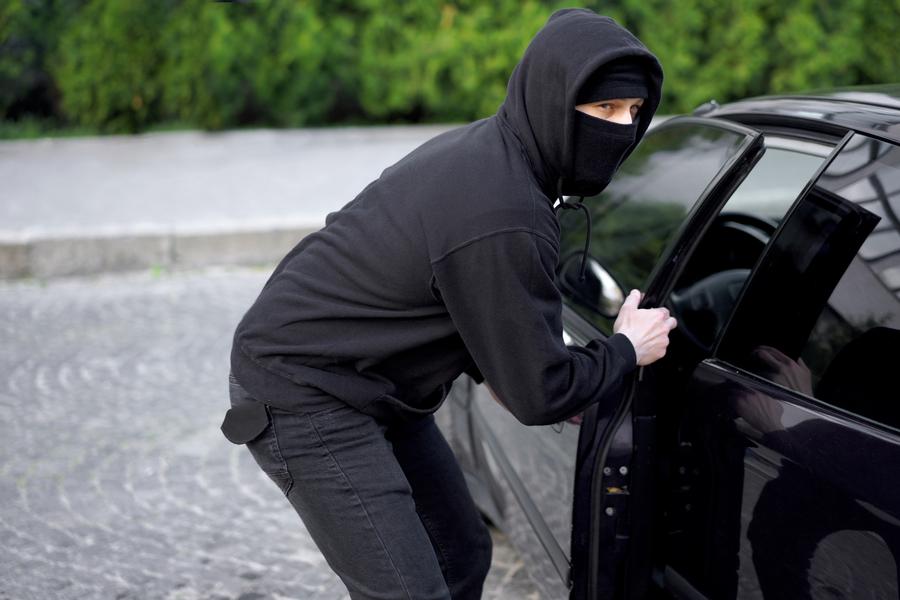
Staying Safe While Hiking: A Guide for First-Time Hikers
To many, hiking is a liberating and rewarding activity. Not only does it offer you an escape from the depressing environment of the city, you also get to experience the therapeutic effects of devoting yourself to nature. However, hiking is not as simple as it is enjoyable. Due to the human comforts we've fashioned for ourselves in our homes, exploring nature for prolonged periods means exposing ourselves to both the earth's abundance and coldheartedness. Like the rest of wildlife, we will be subject to survival.
Here's how you stay safe on a hike.
Safety Tips for the Modern Hiker
Check the weather forecast.
The first thing on your checklist of preparations should always be checking the weather forecast before heading out. It will help you pack the right things according to the weather. Also, check if there are forecasts of thunderstorms, snowfall, heavy rains, etc. in the coming days. As much as possible, cancel or postpone hiking plans on these days if there is any such update.
As much as possible, don't hike alone.
Studies show that falling is the most dangerous thing that can happen to hikers. Imagine falling down the backcountry without anyone else around to help you, even if you scream for help. If you are hiking in a group, make sure that you don’t walk so fast that some members of the group are left behind.
Know the trail.
Exploring new trails means you're unfamiliar with the area, so always be sure you know where you're going and what you'll encounter on the trail. It pays to check regional hiking information to give yourself a heads-up about the wild animals, poisonous plants, hunting seasons, and nasty insects you might come across.
Hike early.
As if this isn't obvious, it's safer and easier to hike during the day. To avoid the peak hours of sun and heat, however, experienced hikers set out early in the morning or late in the afternoon. If the trip you're planning should be done in a day, make it a point to return home before the sun goes down. Hiking in the dark makes both the entire terrain and nocturnal wild animals prowling about difficult to see on the way home, even when you’re carrying lights.
Pack the essentials.
First assembled in the 1930s by the Mountaineers, a nonprofit outdoor community of 14,000 active members in the Pacific Northwest, the ten hiking essentials are a must for every hike. We listed down these essentials below.
Pack light.
The bare essentials should be what takes most, if not all, of the space inside and the weight of your bag. Don’t carry unnecessary stuff. Carrying a light backpack will help you preserve energy for the trail ahead.
Share your itinerary with trusted people outside the group.
Write down the entire itinerary and schedule that all your hiking companions agree upon. Include the starting point of the hike, the time, destination, route, the time you all expect to finish the trip, and the anticipated time that you all return home. Upon finishing the plan, share it to family, friends, and even to the park office. In the event that your group does not come home on time or communicate as promised, these informed people will be able to report to the authorities immediately.
Prepare for animal encounters.
In case of a chance encounter, learn the basics of escaping an animal attack. A good hiker should also have the knowledge of the animals in the area and how to understand animal behavior. Wear full-sleeved shirts and full pants especially at night to prevent insect bites.
Come up with an emergency plan.
When planning for your trip, never forget to include what to do in case of an emergency. You should know whom to call for help or send alerts to if ever an untoward incident happens. What if the area you’re hiking in has no reliable cell service? Or GPS signal? What if all your communication devices' batteries die out? What if, god forbid, one of you falls down a steep ravine? Always be prepared for worst-case scenarios.
10 Hiking Essentials for Explorers
The ten essentials have evolved over the years into a list of functional systems rather than ten individual items, helping people prepare for emergency situations during hiking trips. Back then, the list included a map, compass, sunglasses and sunscreen, extra clothing, a headlamp/flashlight, first-aid supplies, a fire starter, matches, knife, and extra food. Today, the ten essentials include the following:
1. Navigation
Navigation tools normally include five essentials for exploring the backcountry: a map, compass, GPS tracker, and a personal locator beacon (PLB). In case of emergencies, you will need to have a way to track your location and alert someone if you are lost or injured. Note that mobile phones may not work in the wilderness. That’s why you should equip yourself with a GPS tracking device instead. Not only can these devices provide maps and navigational systems, but they also offer the feature of sending an alert to the authorities, a friend, or a loved one if you badly need help. While technologically advanced GPS devices like Tracki’s small GPS tracker can easily replace all the other navigation essentials for your backpacking convenience, old-school navigation tools do not rely on battery power and/or a network connection.
2. Illumination
Your phone has a flashlight, yes, but remember that you’re already using up your phone’s power for almost everything: GPS, hiking apps, contacts, photos, and entertainment. Your phone’s flashlight isn’t also as powerful as common lighting equipment, so pack up on the LED lights, rechargeable headlamps, flashlights, and/or lanterns.
3. Sun protection
Regardless of the season you're hiking in, the sun will always be up during the day. You can even get sunburned even in the middle of autumn. Staying under the sun for prolonged periods is dangerous, sometimes fatal, so always pack with you sunscreen, lip balm, sunglasses, and sun-protection clothing.
4. First-aid and hygiene
There is a whole bunch of small injuries and ailments that can make your day miserable. You can order preassembled first-aid kits for hikers online, but if you prefer gathering your own supplies, be sure to include treatments, adhesive bandages of various sizes, several gauze pads, adhesive tape, antiseptic, ointments, insect repellents, cotton swabs, over-the-counter pain medication, prescription medications, pen and paper, nitrile gloves, and hot or cold packs. And since first-aid kits are meant for emergency situations, you may want to include bear deterrents, a whistle, or certain weapons. Also, since you’re exploring the great outdoors, expect to be dirty. Aside from first-aid supplies, hygiene essentials are as important for hikers. Pack a hand sanitizer, toothbrush, toothpaste, sanitation trowel, toilet paper or wipes, menstrual products, and a trash bag.
5. Tools
A small gear repair kit can solve most of your hiking problems, and the more remote you are, the more important your kit becomes. Common items include duct tape, cordage, fabric repair tape, zip ties, safety pins, and repair parts for a water filter, tent poles, stove, sleeping pad, crampons, snowshoes, and skis. Knives are especially handy, and so are multitools.
6. Fire
Many people prefer a disposable butane lighter. Matches are also suitable so long as they are waterproof or stored in a waterproof container. Fire starters, on the other hand, help you jump-start a fire and are indispensable in wet conditions.
7. Shelter
In case you get stranded or injured on the trail, any type of emergency shelter to protect you from wind and rain will help you stay safe. Options include an ultralight tarp, a bivvy sack, an emergency space blanket, or even a large plastic trash bag.
8. Nutrition
The average hiker should consume at least 200 calories per hour. Depending on your body weight, metabolism, and exertion level, you may need more or less food. For a day trip, pack perishable foods, such as sandwiches. Just be sure you have a cold source (like an ice pack) to keep food properly chilled. If you’re camping, bring ready-to-eat cereals, canned goods, and instant food or mixes.
9. Hydration
You may not sweat as much if you’re hiking during the autumn or winter, but water is still the vital ingredient to life and you should consume it in plenty when you’re doing something active like hiking. Before setting out, prehydrate by drinking at least 4 cups of water so you have less to carry. It gives your body a head start on the fluids you’ll lose, and it means you’ll be carrying less weight on your back. Then get into the habit of sipping often throughout the day instead.
10. Insulation
Regardless of the season you’re hiking in, conditions can suddenly turn wet, windy, or chilly. Or a major injury can result in an unplanned night out. It’s necessary to be prepared for anything that could come your way. It may benefit you to carry extra clothes like long underwear, an extra hat, a balaclava, extra pair of heavy socks, and an extra pair of mittens.
Conclusion
Conquering heights and forest trails is no easy task. So before you ruin your adventure over insect bites, sunburn, an unexpected downpour, or an accident, make sure you’ve prepared yourself for whatever comes your way to make your hike as rewarding and enjoyable as it was intended. Safety first!



